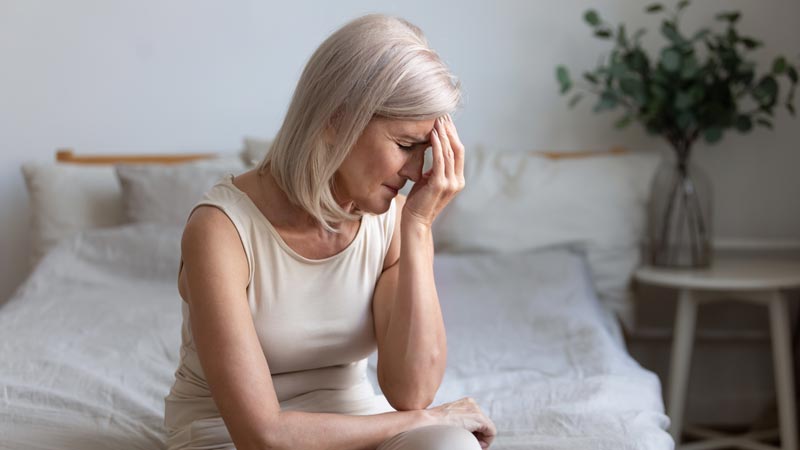The term mental illness can sound like an exaggeration, but depression, grief, and anxiety are a big deal. Sadness or worry can affect us at any time of life, but as we get older some of us face special challenges — and low moods can persist and become hard to recover from. It’s important for older adults and those who care for them to pay attention to the warning signs of serious depression or chronic anxiety, and to know when to take action.
CAUSES OF ANXIETY AND DEPRESSION
Aging can bring about a natural diminishment in mental or physical ability, something that can be tough to accept. More importantly, as friends and loved ones begin to pass away, grief and loss can contribute to mental distress.
WARNING SIGNS
Depression is extremely common among the elderly, as millions and millions of older adults suffer from this late-life affliction. Yet, a relative few receive appropriate treatment for depression. Aging adults, as well as their caregivers, need to be aware of red flags, including (but not limited to) mood swings, change in diet, hopelessness, substance abuse, excessive sleep or lack of sleep, rage, extreme anxiety, obsessive-compulsiveness, and suicidal thoughts. If we feel or notice any of these things, we need to know it is OK to let someone know and to take these signs seriously.
SLEEP
Sleep is often a key indicator of whether or not an aging adult is suffering from mental illness. Insomnia is a disorder that inhibits a person’s ability to fall and remain asleep. This disorder is particularly common in seniors with a decline in mental and brain health.
DIFFICULTY IN DIAGNOSIS
Diagnosing mental illness in the elderly is much more challenging than it is for younger age groups. This is caused by the fact that the symptoms of poor mental health often overlap with those of the other illnesses the aging adult may be facing.
PHYSICAL CONSEQUENCES OF POOR MENTAL HEALTH
The effects of mental illness in the elderly can threaten a person’s physical health in three primary ways. First, depression increases the risk of cardiac issues. Furthermore, not only does poor mental health put the senior at risk for more physical ailments, but it also increases the likelihood of death when those physical illnesses strike. The third and final way depression can affect an aging adult physically is that it exacerbates existing illnesses.
TREATMENT
There are numerous effective ways to help promote healthy aging by increasing long-term brain and mental health in older adults. Receiving counseling from a therapist is a good step to take if a loved one is willing and able to speak about their depression or mental health fluctuations.
As always, support from friends and family goes a long way to increase the overall well-being of aging adults. Declining mental health is a struggle that many of us will face as we age, but with the proper care, support, and guidance, anyone can begin making great strides toward reclaiming contentment and happiness.
If you are looking for help for your loved ones, TheKey Mesa office can be reached at (480) 699-4899


